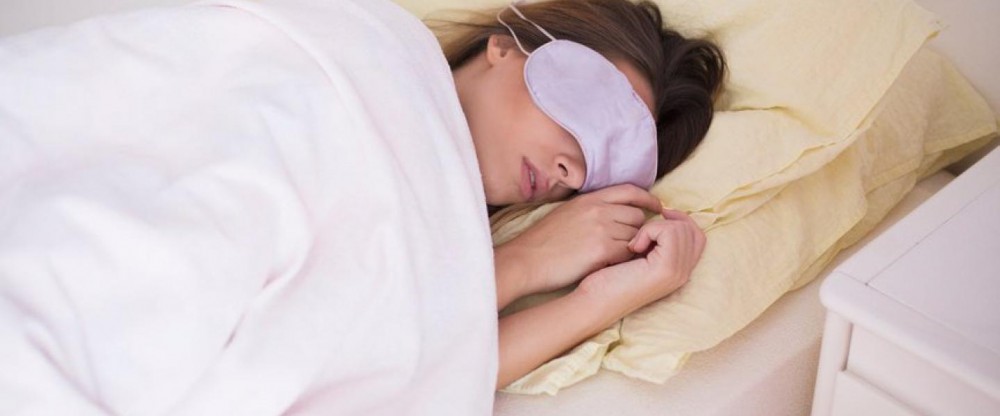ADHD and Sleep
Attention deficit/hyperactivity disorder (ADHD) is a term used to describe hyperactivity, inattentiveness, and/or impulsivity. It is a common condition that begins in childhood and may persist into adulthood. Children with ADHD typically have trouble sitting still, staying focused, and/or controlling their behavior and emotions, which can lead to lower social skills, isolation, dependence, and poor performance in school. For this reason, children with ADHD often require special attention from parents, teachers, school systems and healthcare and mental health professionals in order to succeed.
ADHD is linked with a variety of sleep problems. For example, one recent study found that children with ADHD had higher rates of daytime sleepiness than children without ADHD. Another study found that 50% of children with ADHD had signs of sleep disordered breathing, compared to only 22% of children without ADHD. Research also suggests that restless legs syndrome and periodic leg movement syndrome are also common in children with ADHD.
In general, sleep deprivation is a problem among children in America. According to NSF's 2004 Sleep in America poll, more than two-thirds of children experience one or more sleep problems at least a few nights a week. For children with ADHD, poor sleep (too little sleep or symptoms of sleep disorders) may profoundly impact ADHD symptoms. In fact, one study found that treating sleep problems may be enough to eliminate attention and hyperactivity issues for some children.
Children and adults behave differently as a result of sleepiness. Adults usually become sluggish when tired while children tend to overcompensate and speed up. For this reason, sleep deprivation is sometimes confused with ADHD in children. Children may also be moody, emotionally explosive, and/or aggressive as a result of sleepiness. In a study involving 2,463 children aged 6-15, children with sleep problems were more likely to be inattentive, hyperactive, impulsive, and display oppositional behaviors.
Sleep problems are also common in adults with ADHD. In one study, researchers compared adults with narcolepsy, idiopathic hypersomnia, and AHDH and found a high percentage of symptom overlap, suggesting the possibility of ADHD misdiagnosis among adults.
According to a report by the Centers for Disease Control and Prevention, the prevalence of ADHD is 4-5%. The report also found that ADHD occurs much more often in boys than girls, but the prevalence among adult men and women is about equal. The cause of ADHD is not known but experts suspect that it may be related to anatomic abnormalities in the brain, maternal smoking, exposure to toxins, and/or genetic factors.
ADHD is linked with emotional problems, higher rates of drug and alcohol abuse, and poor performance at school and work. Similarly, sleep problems are associated with mood disorders and intellectual impairment. Treating sleep problems in children and adults with ADHD may improve symptoms and quality of life. For information about treating ADHD and sleep problems associated with it, see "treatment" and "coping."
Additional Information
Symptoms
Treatment
Coping
Poll Data
Reviewed by Ronald Chervin, MD, MS, and by Jodi Mindell, PhD.
Is pain keeping you awake? Find out why pain affects sleep and what you can do to sleep better.Sleep talking, formally known as somniloquy, is a sleep disorder defined as talking during sleep without being aware of it. Sleep talking can involve complicated dialogues or monologues, complete gibberish or mumbling. The good news is that for most people it is a rare and short-lived occurrence. Anyone can experience sleep talking, but the condition is more common in males...For most people, dreaming is purely a "mental" activity: dreams occur in the mind while the body is at rest....A frequent need to get up and go to the bathroom to urinate at night is called nocturia. It differs...The term “anti-aging” may conjure up images of expensive wrinkle creams and nutritional supplements, but one of the most impactful...Though it may come as no surprise that people find it harder to fall asleep when they’re emotionally wound up,...Sleep problems like insomnia can be caused by many different factors, including chronic pain, acid reflux, and depression. But did...For people juggling family, work, and a personal life, feeling exhausted may seem like it’s just par for the course....Sleep is restorative for the body and mind. But if you’re among the more than 18 million Americans who have...You know that your family medical history, along with what you eat and how much you weigh, can affect your...

Source: Internet





